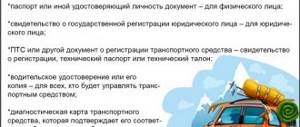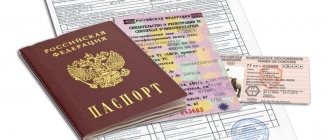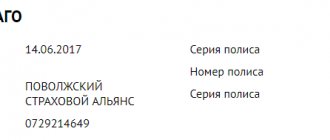An accident can happen to every car owner, regardless of his experience and knowledge of traffic rules. In the event of an accident, the injured party can demand full compensation from the insurance company.
According to the law, a citizen of the Russian Federation does not have the right to drive a vehicle without an appropriate insurance policy. In addition, such cars are not subject to state registration; if the law is violated, an administrative fine will be levied on the perpetrator. Compliance with insurance conditions is controlled by government agencies and legislative documents.
Despite this, litigation quite often arises with insurance companies (IC) regarding compensation for losses.
What laws does the court follow?
Current regulations on compulsory motor liability insurance:
- Constitution of the Russian Federation.
- Federal Law No. 40-FZ of 2002 on compulsory insurance of car owners.
- Law No. 223-FZ of 2014, which spells out amendments to the previous law.
- Law on the protection of consumer rights N 2300-1.
- Regulations of the Central Bank of 2014 N 432-P on a unified methodology for calculating restoration repairs.
- Rules of technical examination N 433-P, approved by the Central Bank in 2014.
Regression
According to the law, after paying compensation to the injured party in an accident, the insurance company can file a recourse claim against the at-fault driver. In fact, insurers refuse to pay drivers if there are reasons that suggest recourse.
If the driver was really intoxicated, or if there was a person behind the wheel who was not included in the MTPL insurance policy, then you should not hope for a decision in favor of the driver. In this case, the insurance companies will win this case.
Also, different decisions are made on the question of who is subject to recourse - the owner of the vehicle who allowed a person not included in the insurance policy to drive the car, or the driver himself who committed the traffic accident. So far, there is a tendency to decide that the driver who drove the car should recover money from a recourse claim.
General provisions
When taking out a policy, an agreement is signed between the policyholder and the car owner, which specifies possible insured events. It also spells out those situations when the insurance company disclaims all responsibility. Why then does there exist judicial practice on compulsory motor liability insurance?
The fact is that the court more often comes to the defense of the injured party and makes decisions without taking into account the terms of the contract. As a result, insurers pay compensation in full. In addition, the number of scammers who hire lawyers and receive compensation from the insurance company that is not due to them has increased. In this case, victims are left without money or receive a minimum amount.
Given this problem, the Supreme Court made a number of changes to the legislation. Now the trial is carried out only after the citizen personally submits an application to the relevant authority. The payment is made not to the intermediary, but to the injured person. This allowed us to minimize the number of fraudulent cases.
Most often, all disagreements between the insurance company and the policyholder are resolved by agreement, without the involvement of judicial authorities.
If payment under compulsory motor liability insurance is delayed for more than 20 days, the insurance company pays a penalty of 1%. If the insurance company violates the deadline for issuing a refusal, it will be assessed a fine of 0.05%. Penalties come into force 21 days after the client delivers the documents to the company.
Litigation with an insurance company under compulsory motor liability insurance
After the state obliged all car owners to insure their cars using the MTPL system, many were confident that finally motorists would receive guaranteed protection in the event of an unfavorable road accident.
But in reality, “guaranteed protection” has turned into active opposition from insurance companies that seek to pay as little as possible, or even refuse to make payments at all. Moreover, openly fraudulent schemes and violations of current legislation are often used for this.
As practice shows, even if a car owner who was involved in an accident and was recognized as an injured party submits all the necessary documents to the insurance company to process an insurance claim, he is faced with the fact that insurers are actively delaying all payment deadlines, thereby committing serious violations of the law.
In addition, insurers are doing everything possible to pay as little compensation as possible, or even find any excuse for refusal. As a result, the situation takes on the character of a conflict, and often finding a solution becomes impossible without the participation of the courts.
Statistics show that most motorists have an extremely negative perception of the need to go to court. They are confident that they will not be able to prove anything, and therefore they will only spend extra money and lose their free time. But this is absolutely not true.
The court generally takes the side of the victim, and therefore the likelihood of winning over the insurers is very high. Of course, it is impossible to do this on your own, but if you involve a qualified lawyer in the process who has the necessary knowledge and skills to fully protect interests, then in this case the chances of reining in the arbitrariness of insurers increase sharply.
The assistance of a lawyer is necessary primarily in order to avoid errors and inaccuracies that can significantly affect the outcome of the process.
It is worth noting that if the statement of claim is drawn up incorrectly, or some important documents are not provided, then the court has every right to refuse to satisfy the claim. To avoid encountering this problem in practice, it is necessary to immediately involve a qualified lawyer in the process.
An example of a statement of claim to an insurance company. Read about the claim against the insurance company under MTPL here.
You can find out about the redemption of insurance cases at this link:
An auto lawyer will help you competently draw up a statement of claim and file claims against the insurance company, while referring to the current legislation. In addition, the lawyer will help calculate the calculation of insurance compensation, while explaining certain amounts. A lawyer will provide important assistance when conducting an independent examination, which is the basis for filing a claim.
It's no secret that insurers often refer the car owner for examination to interested parties who cooperate with the insurance company, and therefore, at its request, cannot always be honest and fair. With the help of a lawyer, you can conduct an additional assessment of the condition of your car, which will help you achieve justice.
Important! If the court doubts the correctness of the assessment of an independent expert provided by both the insurer and the owner of the car, then it has the right to order an additional examination, based on the results of which a final verdict will be made.
What questions can you bring to court as a plaintiff under compulsory motor liability insurance?
- The compensation awarded by the Insurance Company does not correspond to the losses incurred. If the amount of damage exceeds the assigned payment amount, an independent examination should be carried out and its results should be applied to the court.
- The insurance company delays making a decision, does not pay the amount due on time, or only partially repays losses.
- The insurer refused the claim; for example, it did not consider the accident an insured event. Illegal actions of the company are a violation of consumer rights.
- The amount of damage is much higher than what is allowed under insurance. In this case, the difference is collected from the culprit of the incident in court.
In addition, policyholders go to court for other reasons:
- reimbursement of treatment costs;
- compensation for moral damage if it is proven that the victim suffered a neurological disease or psychological trauma;
- payment for notary and car lawyer services;
- refund of funds for examination and state duty;
- reimbursement of expenses incurred during the evacuation and storage of a damaged vehicle;
- other court-related costs.
If the victim does not submit an application to the Investigative Committee within the prescribed period, he can also appeal to the court. According to the law, the statute of limitations for claims for compensation due is 3 years. However, lawyers advise submitting documents as early as possible. Otherwise, the insurer may refuse to pay, citing violation of deadlines on the part of the plaintiff.
Note! The MTPL law does not provide for monetary payments to those responsible for the accident. Before filing a claim, a citizen must notify the insurance company of his disagreement with the assigned amount of payments. Without this condition, the court will not consider the case. It is advisable to resolve all disagreements out of court.
The Supreme Court sided with the owners of OSAGO. Review of five cases
Due to the fact that the list of insured events is quite extensive, it is simply impossible to list all the circumstances that could lead to payments under an auto liability policy.
Speaking very generally, we can say that an insured event under an auto liability policy includes all circumstances when a citizen who has an auto liability policy, while driving his vehicle, caused harm to the health and life of another person, or caused damage to the property of third parties.
Compensation payments for insured events are a one-time payment, or car repairs at the expense of the insurance company. It is also important to understand that there are a number of established reasons why payments under an auto liability policy will not be made.
IMPORTANT: As for the amount of compensation payment, it is established by law and cannot be higher than a certain limit.
The amount of compensation payment under the motor third party liability policy is 400 thousand rubles. - compensation for damage to property. When compensating for harm caused to the health and life of the victim, the limit is 500 thousand rubles.
To determine the basic concept of an insured event and motor vehicle insurance in general, two main criteria are used:
- The object that the auto liability policy insures is your liability for damage caused to third parties.
- The subject of insurance is the movement of a vehicle through a certain territory of the Russian Federation.
Based on these two criteria, an insured event is considered to be the fact of damage to another vehicle, property, life or health of the victim(s) as a result of the movement of the car of the guilty person along the territory (roads) provided for this purpose.
That is, in order for the insurance company to recognize your case as payable, a combination of several factors is necessary:
- The fact that the person at fault has a valid auto liability policy.
- At the time of the incident, the vehicle of the person at fault must be in motion.
- The fact that as a result of the incident the perpetrator caused harm to the victim.
As you understand, not every incident that is associated with the use of vehicles can be recognized by an insurance organization as an insured event subject to compensation.
You need to know that auto insurance only insures your liability to victims, and there are other types of insurance to insure your property.
The period for consideration of the case is regulated by current legislation and is 20 calendar days. But the sooner you submit an application for payment and attach all the documents necessary in this case, the faster the insurance company will pay you compensation.
In order for the insurance company to make compensation payments, you must accurately and in the correct sequence perform the necessary actions after the accident has occurred.
There are three main stages in this process:
- Actions that you must take when filing an accident at the scene of the accident.
- Receiving documents and analyzing the case at the traffic police department.
- Writing an application to the insurance company and receiving your compensation payment.
According to traffic regulations, in the event of an accident, the driver must stop immediately. It is also necessary to turn off the alarm and the car engine. After this, the driver must place a special emergency sign on the road. The sign must be located at least 15 meters from the accident site.
If there are victims of an accident, they should be given immediate assistance and, if necessary, call an ambulance to the scene of the accident. And after that, you must call traffic police officers to the scene of the accident.
ATTENTION: While traffic police officers are traveling to the scene of the accident, you should not change the location of your vehicle, and in no case should you touch those parts that are on the roadway, as they will be necessary for the investigator to determine who is responsible for the situation. .
While traffic police officers are traveling to the scene of an accident, you can call your investigative team and inform them about the incident. Investigative Committee employees will tell you how to proceed in this situation further.
The sooner you open a case about the insured event, the sooner you will receive compensation for damage.
In addition, try to find eyewitnesses of what happened and try to get coordinates from them. Finding such witnesses is sometimes not easy.
And of course we should not forget about the other participant in the accident. Be sure to write down the number of his vehicle, as well as the phone number and registration address. If there is a recording of the incident on the DVR, then this will be an additional advantage for you.
If you do not have a DVR in your car, then perhaps eyewitnesses of the incident or another participant in the accident have one.
Try to do everything as clearly and quickly as possible.
You will also need to fill out a special accident notification form together with the other party involved in the accident. This form will subsequently be attached to the application for payment.
Carefully inspect your car and make sure that all the damage the vehicle received as a result of the accident is included in the inspection report.
When traffic police officers inspect the scene of the accident, try not to get confused and answer the questions they have clearly and concisely.
At the scene of the accident, traffic police officers will take all the necessary measurements and also draw up an accident diagram. Most often, traffic police officers identify the culprit immediately on the spot, but, as a rule, no papers are issued at the scene of the incident.
You will have to go to the traffic police department to get them.
At the department, both participants in the emergency will fill out a special form. forms and receive documents about the incident. You should not restore your car during the entire period of the proceedings.
IMPORTANT: All participants in an accident are interviewed separately.
Despite the above-described practice of courts protecting the policyholder’s position, controversial situations are not always resolved in favor of clients. A detailed analysis of the legality of actions and the legality of certain rules specified in the contract, carried out during legal proceedings, ends with a justified refusal to satisfy the insured's claim. Below we will look at some specific cases from practice.
Decision on refusal to pay under CASCO due to invalidation of the contract
The plaintiff, who took out a CASCO policy in , received a refusal of compensation in the event of the theft of a vehicle. In this case, the insurance company filed a counterclaim to invalidate the contract due to misrepresentation and false information provided by the client during the CASCO registration process.
When considering the case, the insurer proved that at the time of purchasing the policy, the client declared the presence of anti-theft satellite equipment in the car. In fact, at the time of receiving CASCO, the contract for servicing the anti-theft device was no longer valid. This reason served as a reason for declaring the contract invalid, and the client was denied payment under CASCO by a court decision.
Decision to refuse payment due to late notification
A citizen filed a claim against the organization “Russian Insurance Traditions” demanding compensation under the CASCO policy. After the car was damaged in an accident, the citizen did not notify the company about the occurrence of an insured event within the time limits established in the contract. As a result, the company refused to pay him compensation on the basis of late notification and the inability to verify the truth of the circumstances of the accident.
During the court hearing, the plaintiff provided irrefutable evidence that the event complied with the insured event (documents, traffic police report). The court ruled to collect insurance compensation for the claim in full.
Decision to refuse payment due to late payment under CASCO
Failure to comply with the deadlines for payment of insurance premiums is not grounds for termination of the contract and does not relieve the company from its obligations to pay damages. The claim of the owner of the car insured under the CASCO policy was satisfied, and compensation for damage received during the accident was demanded from the defendant. The court considered the organization's arguments regarding the nullity of the contract due to the presence of a late payment to be incompetent.
Decision when refusing repairs at the insurer's service station
If the client refused to repair and restore the car after an accident at the car service center chosen by the insurance company, the latter did not pay monetary compensation for repairing the vehicle at an alternative service center.
The court considered the company's refusal to pay compensation to be unfounded, and the owner of the CASCO insurance policy had the right to choose the method of collecting compensation for damage, regardless of what is stated in the relevant clauses of the CASCO insurance policy.
All issues can be resolved without going to trial. To do this, the car owner should contact his insurer or the insurer of the party at fault in the accident.
Although today the functions of insurance companies are so clearly established that there is now no need to alarm the insurer of the at-fault driver. It is enough to write an application to your insurance company with a request to receive a recovery from the insurance policy under compulsory motor liability insurance.
In total, there are several main reasons why there is a need to go to court in order to obtain the amount of the lost market price of the car:
- The insurer flatly refuses to accept the car owner’s application, which expresses a request for vehicle insurance under compulsory motor liability insurance.
- The company accepted the application or claim for consideration, but refused to comply and did not send a response.
- After submitting a claim (or application), the client receives an unreasonable refusal.
- In response to the claim, a justified refusal was sent, but the policyholder-client does not agree with it.
- The insurer underpaid compensation amounts.
- Consent was received after consideration of the claim, but there is a delay in payments.
- The driver is accused of guilt, whereas there is strong evidence of his innocence in the accident and that, on the contrary, he is the injured party.
- When combined with other types of amounts (damages), the compensation does not exceed the largest amount of payments established by law, but the insurer claims the opposite.
- The car is not old and has not had much wear and tear (more than 50-60%), but the insurance company insists otherwise.
- The insurer refuses to recognize the legislative postulate that TTC is real damage that must be compensated in monetary terms.
- arbitration court;
- courts of general jurisdiction.
What should you know before going to court?
An insured event occurs when an insurance company client is involved in an accident. According to the new rules, the victim must present to the insurer within 5 days documents confirming his rights to compensation. You can contact your insurance company or the insurance company of the person responsible for the incident.
If an individual was injured in an accident, he should ask for help in a court of general jurisdiction; entrepreneurs should file claims with arbitration authorities.
List of documents for submission to the Investigative Committee:
- application addressed to the head of the insurance company;
- policyholder's identity card;
- passport of the damaged car;
- accident report signed by traffic police officers;
- inspection report of the damaged vehicle;
- checks for other cash expenses.
You can contact your insurer if only 2 cars were damaged in the accident, no significant harm was caused to health, and both car owners have an MTPL policy. In all other cases, you need to submit an application to the insurance company that issued the policy to the person responsible for the accident.
The plaintiff in court must present documents proving the illegal actions of the Investigative Committee. First of all, you should attach the insurer's response, which states the reason for the refusal. You also need an act of acceptance and transfer of documents to the insurance company, which indicates the date of application. An independent expert’s decision is necessary in order to prove the underestimation of the amount of payment by the insured. Other evidence may be required, for example, witness statements or video recording.
Judicial practice in 2021
Today, litigation against those responsible for road accidents has only increased. Victims learn their rights and file claims, because the statute of limitations is 3 years from the date of the accident. Basically, as mentioned earlier, the court satisfies such claims, since we currently have such legislation.
As an example, let us present you with a case in which the trial court refused to collect the difference from the culprit, but the appellate court corrected this. The appeal ruling is posted on the website of the Leningrad Regional Court.
What experts can be involved?
Damage assessment is usually carried out by the insurance company itself. As a rule, an expert technician with special training and certification is involved for this purpose. In other cases, it issues a referral for an independent examination.
If the insurer has not assessed the damage, the client has the right to contact another authority and inspect the damaged car on his own.
Advice: It is advisable to contact a car service yourself to determine the wear and tear of the vehicle, since the monetary payment depends on the results of the examination.
Often the amount of damage determined by the insurance company and the independent expert does not coincide. This is grounds for going to court. It may happen that the amount of depreciation of the car exceeds the maximum established in the MTPL policy. The difference is usually recovered from the person at fault.
The Supreme Court summarized judicial practice in cases of compulsory motor liability insurance
On June 22, the Supreme Court (SC) approved a review of judicial practice on disputes related to compulsory motor liability insurance. The Supreme Court summarized the cases considered by courts of general jurisdiction and arbitration courts.
The 48-page document contains 5 chapters:
- Procedural issues;
- Insurance contract;
- Subrogation;
- Insurance payment;
- Insurer's liability.
Most of the cases are presented in the “insurance payment” section.
Disputes about the collection of insurance payments, about challenging the amount of the amount paid, about the collection of sanctions for failure to comply with the deadline for sending a reasoned refusal to pay, about the collection of a penalty for violating the payment deadline, about the collection of a fine for failure to voluntarily fulfill the demands of the victim form the main court cases. For example, the Supreme Court of the Russian Federation clarified that the car owner has the right to recover the costs of conducting an independent examination of the vehicle from the insurer if he did not conduct the necessary research.
Situation (based on the practice of the Arbitration Court of the Moscow District, the Arbitration Court of the Ural District, the Lipetsk Regional Court):
Individual entrepreneur X. filed a claim against the insurance company for compensation in the form of the cost of restoration of the vehicle and the cost of assessing the damage.
The court of first instance partially satisfied the claims. The defendant had to reimburse the amount of the insurance indemnity. The court refused to reimburse the costs of conducting an independent examination. The argument is that these expenses are included in the insurance indemnity limit, and accordingly, they cannot be recovered. The appeal upheld the decision.
But the cassation court overturned the judicial acts of the lower instances and satisfied the requirements in full.
Court's reasoning:
Based on the provisions of paragraphs 10-12 of Article 12 of the Law on Compulsory Motor Liability Insurance, in the event of damage to a vehicle, the victim, who intends to exercise his right to insurance payment, is obliged to submit an application for insurance payment and present the damaged vehicle for inspection, and the insurer - to inspect it, and in if necessary, organize an independent examination.
The plaintiff sent a telegram to the insurance company requesting an inspection of the damaged car and compensation for losses. The insurer did not conduct an independent examination within the required period and did not pay the insurance compensation.
The plaintiff independently entered into an agreement to conduct an independent examination. In accordance with paragraph two of paragraph 13 of Article 12 of the Law on Compulsory Motor Liability Insurance: if the insurer did not inspect the damaged property or its remains and (or) did not organize an independent technical examination, an independent examination (assessment) of the damaged property or its remains within the period established by law, the victim has the right to apply independently for technical expertise or examination (assessment). Which is exactly what the plaintiff did.
In this case, the results of an independent technical examination or independent examination (assessment) independently organized by the victim are accepted by the insurer to determine the amount of the insurance payment.
Article 12 of the Law on Compulsory Motor Liability Insurance, which establishes the amount and procedure for reimbursement of expenses when damage is caused to the property of the victim, indicates that the cost of an independent examination (assessment), on the basis of which the insurance payment was made, is included in the damages subject to compensation by the insurer under a compulsory insurance contract ( paragraph 5 of article 12 of the Law on Compulsory Motor Liability Insurance).
At the same time, the costs of conducting an examination are not insurance compensation , since they must be incurred when the insurer carries out ordinary business activities.
The plaintiff had to bear the costs of the examination due to the fact that the defendant did not fulfill his duty. Consequently, the cost of an independent examination (assessment), on the basis of which an insurance payment should be made, is included in the losses subject to compensation by the insurer , and not in the insurance payment .
According to paragraph 1 of Article 393 of the Civil Code of the Russian Federation, the debtor is obliged to compensate the creditor for losses caused by non-fulfillment or improper fulfillment of obligations.
By virtue of Article 15 of the Civil Code of the Russian Federation, a person whose right has been violated may demand full compensation for the losses caused to him, unless the law or contract provides for compensation for losses in a smaller amount.
See the text of the review of judicial practice of the RF Armed Forces in cases related to compulsory motor liability insurance.
Position of the Supreme Court
In 2021, the Supreme Court on compulsory motor liability insurance issued a review of disputes regarding motor vehicle civil liability. The most significant positions were highlighted:
- The insurer has the right to make direct compensation for losses if the car was damaged in an accident from a direct collision with another vehicle that has insurance.
- All claims from individual entrepreneurs carrying out economic activities on the vehicle are considered through arbitration.
- If disputes arise between the organization that made direct payments to the victim and the company that insured the culprit of the accident, all disagreements must be resolved pre-trial.
- If an application for compensation, penalties and fines is submitted simultaneously, the pre-trial conflict is considered resolved if at least compensation has been paid.
- If the driver drove the vehicle under a power of attorney or a rental agreement, he is not entitled to payment.
Not only the victim, but also the insurer can demand money!
Expert opinion
Volkov Alexander Georgievich
Legal consultant with 8 years of experience. Specializes in family law. More than 3 years of experience in drafting contracts.
Situations when insurers turn to the culprit of an accident with demands to pay are not uncommon. Such claims are either by way of recourse or by way of subrogation.
Recourse requirements arise from the MTPL Law. Article 14 directly states situations when the culprit will pay for the damage caused, which the insurer compensated for it.
For example, when he fled the scene of an accident or was intoxicated. Also, recourse awaits those who were not included in the policy as a driver allowed to drive a car, or when the MTPL agreement was concluded for a certain period, but the accident occurred at a different time.
Subrogation is when compensation for damage is demanded by the insurer of the victim, not the culprit. That is, in the case where the victim had CASCO insurance.
Having compensated for all the damage, the insurance company acquires the same right to demand payment of the damage, without taking into account wear and tear, as if the victim himself had demanded from the culprit. In such a situation, it is necessary to look at what the CASCO insurer repaired and repaired, because the bill may include parts that were not damaged in the accident.
But the situation is clouded by the fact that the culprit may not have photographs of the damaged car and parts in order to substantively argue with the insurer and conduct an examination.
It is also important to know that damage without taking into account wear and tear, but in fact the difference between the cost of repairs according to the market and according to OSAGO, should be calculated not at dealer prices, but at average market prices in the region. This is especially true for situations with CASCO insurance, since in many contracts, compensation is carried out through repairs from officials.
Lost earnings
Another controversial issue is lost earnings. It is believed that the inability to perform duties after an emergency entails loss of wages. Since this is a direct consequence of an insured event, the insurance company must compensate for the damage.
This is not profitable for insurers. Therefore, they always try to refuse payment, this is justified by benefits as compensation and the lack of medical examination. In such situations, judges usually rule in favor of the driver. According to the Supreme Court, there is no need for any examination. When submitting an application for compensation of lost earnings, it is understood that the benefit should not be included in the amount of compensation for damage. This rule applies even if the limit of 500 thousand rubles is exceeded.
OSAGO policy is fake
A fake insurance policy is an extremely common occurrence, which is why there is extensive judicial practice. The insurance company must prove that the policy is not original or counterfeit.
Refusal to pay can only be justified if there is convincing evidence of malicious intent on the part of the driver when taking out an insurance policy. Often, car enthusiasts simply become victims of scammers. There are situations in practice, the refusal of which is justified by the statement of the insurance company and the theft of forms at the time when drivers used fake policies. If one is discovered during a traffic accident, then the at-fault driver will pay compensation.










